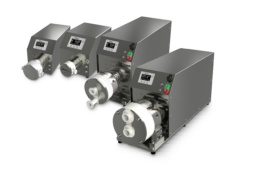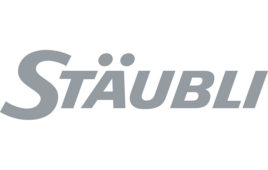SKAN US Inc., a wholly owned subsidiary of SKAN AG and a provider of isolation and hydrogen peroxide decontamination technologies, was originally founded in 2006 as a Colorado-based company. In 2012 SKAN US moved and consolidated all sales and service operations in Raleigh, NC. The company’s Raleigh facility is located near the Research Triangle Park area.
The facility provides sales/service support, parts distribution, engineering, and project management support for customers throughout North America. SKAN US expanded again in 2013 to offer microbiological testing capabilities, as well as isolator load configuration studies, to be performed at the Raleigh location.
Today, SKAN US offers North American-based companies the following support services from its Raleigh facility:
- Sales proposals with sales engineering support
- Service parts and distribution center
- Service scheduling and test kit dispatch
- Relocation or upgrades to existing isolators
- Mock-up reviews on RABS and isolators
- Cycle development and validation
- Micro lab testing and studies
- FAT’s on selected SKAN products
- Educational seminars and training programs
- Engineering design support and project management
Pharmaceutical Processing recently asked Les Edwards, Vice President of Technology and Business Development at SKAN US, a series of questions about some of SKAN’s latest technologies, and where he sees the company and the pharmaceutical market headed over the next few years.

Q: Please give us a brief history of the company, the types of products and services offered, along with the customer objectives.
Les Edwards: SKAN AG is celebrating our 50th anniversary in 2018 and we are excited to continue to lead the industry in isolator systems, hydrogen peroxide decontamination, and related products and services.
Our typical customer is engaged in aseptic manufacturing or laboratory testing and utilizes our systems to create an aseptic manufacturing environment, testing environment, or to decontaminate critical process equipment or components entering the aseptic core.
The services that SKAN provides to document our equipment and test our systems is second to none. We scientifically develop efficient and effective biodecontamination cycles that take into account unique customer and product requirements.
Q: Can you describe the customer base today? Has that expanded or changed over the last few years?
Edwards: SKAN is a global company based near Basel, Switzerland, that serves the pharma and biopharmaceutical industry with their special needs for aseptic processing. We have grown from 180 employees in 2011 to over 500 today.
We continue to emphasize our commitment to North America by expanding our SKAN US headquarters in Raleigh, NC, where we manage our force of factory-trained service technicians and stock over $1 million in spare parts.

VarioSys ‘lock and key’ concept. (Credit: SKAN US)
Q: What new trends do you see developing in the pharmaceutical market today and what is SKAN doing to stay ahead of those trends?
Edwards: SKAN has responded to our customer’s needs by evolving from large-scale, single product manufacturing systems to small and flexible modular manufacturing platforms that house many different aseptic processes.
As the technology evolves, so do the number of applications and needs for our rapid decon systems, transfer systems, and emphasis on containment of potent compounds, biologics with complex requirements such as biologics, cell therapy, and antibody-drug conjugates.
Our slogan is “Together, Always One Step Ahead,” which reflects our commitment to working closely with our customers to solve the problems for the next generation of needs while pushing the boundaries of new technologies.
Q: With pressure on drug makers to lower drug prices, do you work with manufacturers to find new ways to build efficiencies into their systems?
Edwards: As noted above, our VarioSys flexible modular manufacturing platform is a great example of how even small to medium pharma companies can efficiently produce aseptic products with the same demanding quality standards of big pharma. Technological breakthroughs have increased efficiency and output, making isolation technology now accessible and cost effective to generic companies and CMOs.
Q: SKAN introduced some new technology at INTERPHEX 2018. Can you briefly describe the new equipment and outline the benefits provided?
Edwards: Last year, SKAN launched our patented NANOX catalyst technology which enabled a rapid breakdown of hydrogen peroxide sterilant gas to harmless water and oxygen in a single pass. In 2018, SKAN is launching a series of new products utilizing that NANOX catalyst technology for material airlocks and room decontamination.
In particular, our new generation of SKANFOG material airlocks can easily be integrated with an existing facility or new construction with no ducting to the outside, saving tens of thousands in engineering, room balancing, and facility ductwork.
In addition, we also (featured) our latest version of the PSI-L Isolator that won an Innovation Award at INTERPHEX 2016, but it continues to evolve. The system is now available with much faster decon times thanks to SKANFOG and the NANOX catalyst, which only encourages more and more uses for this flexible manufacturing platform.

SKANFOG material airlock system. (Credit: SKAN US)
Q: What key factors led to the development and introduction of this particular line of equipment? Regulatory requirements, changing market demand, technological advancements?
Edwards: The new generation of airlocks and isolators is a natural evolution of the available technology, as well as a push from customers and regulators. Customers constantly push SKAN to increase performance and shorten turn-around time to increase process efficiency.
Regulators are getting more and more stringent about requiring manufacturers to adopt these advanced technologies, but they can only do that when they are affordable, reliable, and readily available on the market.
Q: Since the NANOX catalyst technology launch, how has it been received in the market?
Edwards: SKAN’s 2017 launch of the NANOX catalyst technology was really a promise of things to come—greater efficiency and better performance. In 2018, SKAN is delivering on that promise with our new generation of airlocks and isolators.
Q: Are you in the process of developing upgrades or further advancements in the NANOX technology concept? If so, what is on the drawing board?
Edwards: Although not officially launched, there already is a new version of the NANOX catalyst technology in 2018 with an even better performance profile. Not only is there now even higher efficiency, but lower pressure drop through the catalyst bed. This product enhancement will allow for even more applications and increased performance on prior equipment systems, particularly in the areas of large-scale/large-volume systems like large isolators and rooms.
Q: What are the biggest developments in cleanroom design today and how does SKAN technology adapt to those changes?
Edwards: Cleanrooms, like isolators, are becoming more specialized and modularized. The needs have evolved to work with potent compounds as well as flexible manufacturing platforms for cost-effective production of multiple products in a single facility.
Our customers also are upgrading their facilities to utilize these technologies at an accelerating rate, using our material airlocks for transfers that were previously acceptable with a “Spray and Pray” manual decon process.
Cell and gene therapy also have opened up a whole new world to unique, single-patient processes with rigorous requirements for cross-contamination prevention while maintaining efficiency and throughput. SKAN’s new products fit neatly with these new cleanroom requirements as well.

Two-chamber PSI-L VarioSys (Credit: SKAN US)
Q: With the push to bring pharma products to market more quickly, does the contamination risk increase during testing and research, and if so, how is technology changing to reduce those risks?
Edwards: SKAN’s answer to contamination prevention has not changed, but the “package” in which it is presented has changed dramatically. With our small and modular VarioSys isolator systems, the typical R&D filling environment can now adopt the cGMP production standards at an appropriately small scale at a reasonable cost as well.
When scale up (or scale OUT) is required for commercial production, there is a natural path defined using the same technologies already proven in the R&D phase, thereby assuring success and reducing the need to additional process development steps for commercial scale-up.
Q: Taking that a step further, as interest in biosimilar development grows, what challenges are taking place in microbiological testing and how are those challenges being addressed?
Edwards: Microbiological testing methods have evolved over the past decade, but the rigorous quality standards that go into assuring that a product is produced without contamination remain unchanged. There is no tolerance for microbial contamination within an aseptic manufacturing system.
Isolators have helped to make that a reality, but proving the negative can be a daunting challenge. The last few years have seen the increased sensitivity and rapid methods evolve in microbial detection methods, but also mechanical systems such as automated glove leak testing systems have been important quality assurance components in a monitoring and contamination prevention program.
SKAN’s sterility testing isolator systems also have evolved with increased requirements for batch reporting and data trending capabilities.
Q: SKAN’s service operations in Raleigh include a distribution center. Is that strictly to move services parts, or does the center take on a wider role for the company?
Edwards: As noted above, we continue to emphasize our commitment to North America by expanding our SKAN US headquarters in Raleigh, NC. SKAN’s US headquarters is available for many other customer support roles as well.
We have a microbiology lab where you can come and see our isolator equipment, test out your process or sterilization load patterns, and schedule our cycle development or annual cycle requalification work.
We have a RABS retrofit business that is headquartered in Raleigh as well, where we can help build an engineered solution to extend the life of older filling lines, which is in very high demand recently.
Q: SKAN says it offers educational seminars and training programs. What kinds of subjects are addressed in the seminars, are they regularly scheduled, and how extensive are the training programs?
Edwards: SKAN offers a number of training courses on a variety of topics for a wide range of participants. We have SKAN Academy training for customers to get trained on testing or servicing SKAN isolator equipment, which can be offered at our SKAN AG Swiss headquarters, at SKAN US in Raleigh, or customized at any SKAN customer site as well.
We also offer training on cycle development and microbiological qualification methods, all available from SKAN US. From May 9-11, 2018, SKAN is offering our first SKAN US Service Conference as well where you can receive certificate training on various topics and learn more about SKAN isolators and service capabilities.
Q: What other existing or new technologies is SKAN highlighting this year?
Edwards: SKAN’s 2018 emphasis is not only on “product” technologies, but also services. A huge need has evolved for the handling of potent products for chemotherapy and other containment challenges like antibody drug conjugates (ADCs).
What this means is not only changes to our isolator technology, but support in the testing and qualification of cross-contamination prevention. SKAN has published numerous presentations and journal articles with our clients and partners regarding these testing methods.
Q: SKAN establishes a powerful presence each year in the INTERPHEX exhibit hall. How important has INTERPHEX been for the unveiling of new products and technologies?
Edwards: INTERPHEX is SKAN’s premier annual event for the North American market. No other venue provides the platform and support to launch new products and technologies or showcase the capabilities of SKAN to the marketplace.
Q: As you look ahead to INTERPHEX 2019, can you hint toward any particular technology or service areas that you already are considering for introduction next year?
Edwards: Looking to 2019, deploying our new technologies is always our goal as is our commitment to testing and integrating these systems for the best use of the customer. SKAN has many new products in the pipeline as well as new services related to the validation of cross-contamination prevention.
I expect that you will see the launch of a host of new products and services in 2019 with new applications of existing products as well.
________________________________________________________________
An earlier version of this article can be found in the INTERPHEX 2018 Show Daily: Thursday, April 19.
Follow us on Twitter and Facebook for updates on the latest pharmaceutical and biopharmaceutical manufacturing news!



